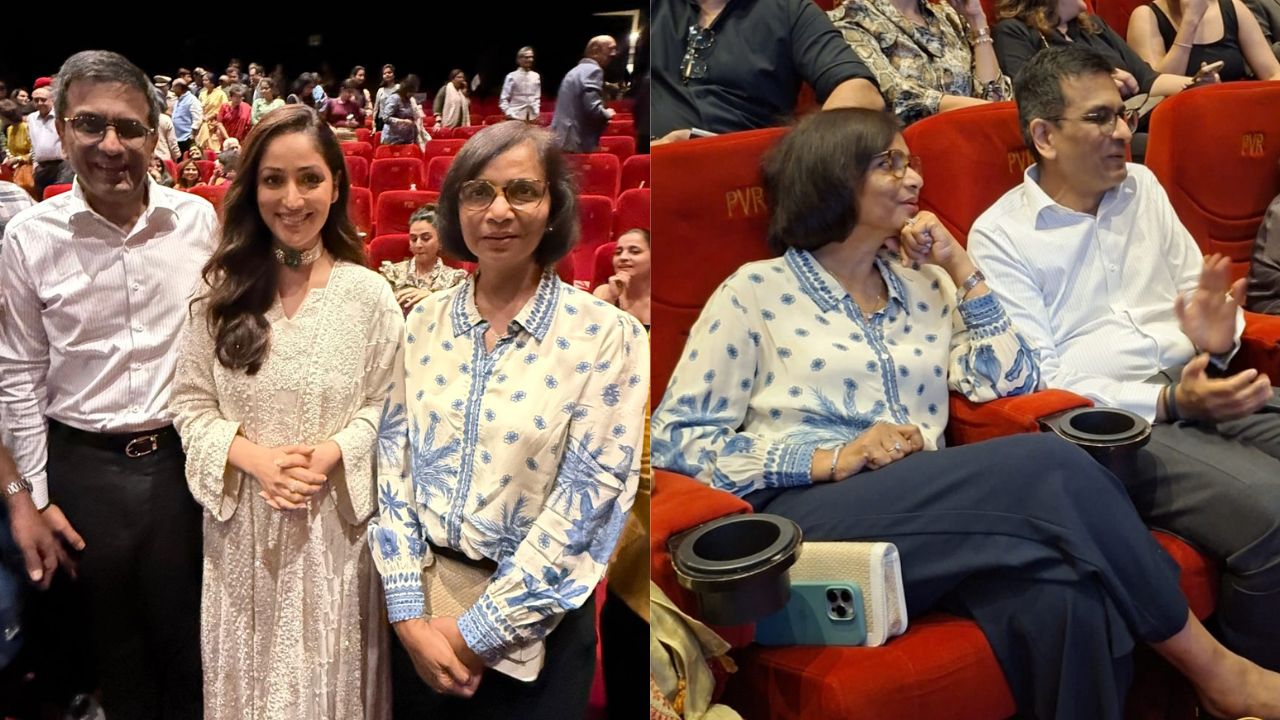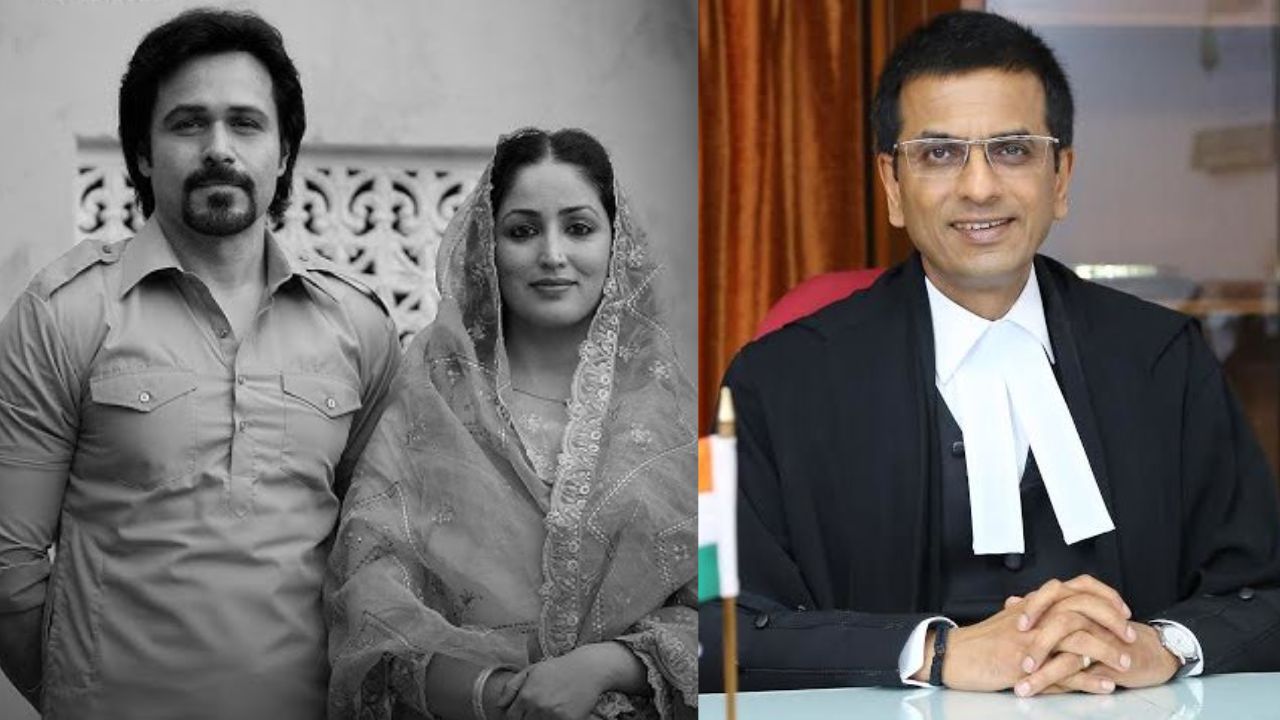 English
English

At Haq’s screening, CJI DY Chandrachud recalled his father Justice YV Chandrachud’s courage in the Shah Bano case, calling it a vindication after 40 years. He spoke on gender equality, the Uniform Civil Code, and the balance between religion and law.

Former CJI Dr. DY Chandrachud at Haq Screening
New Delhi: At a special screening of the film Haq in Delhi’s Chanakya Palace on Tuesday, Chief Justice of India DY Chandrachud shared deeply personal reflections on the historic Shah Bano case: a judgment delivered four decades ago by his late father, Justice YV Chandrachud, the then Chief Justice of India.
The star cast and production team of the film Haq were also present at the screening, along with Union Ministers Kiren Rijiju and Hardeep Singh Puri, who praised the film’s powerful portrayal of justice and equality.
Calling it an “emotional and personal moment,” the former CJI said that his father had faced severe criticism and political backlash for upholding the constitutional principle of equality for women. “There was a vitriolic attack on him in Parliament for delivering a judgment that said that the rights given to women under our law cannot be taken away on the basis of religion or caste,” he recalled.
He added that his father’s stand was not just judicial but deeply moral. “He stood by the Constitution even after he retired. He was attacked and threatened for having delivered a judgment that upheld women’s rights, but he never wavered,” Justice Chandrachud said.
The Shah Bano case (1985) was a landmark Supreme Court judgment in which Section 125 of the Criminal Procedure Code (CrPC)—a secular provision allowing maintenance to wives—was applied to a Muslim woman, Shah Bano Begum, who had been divorced by her husband. The decision triggered widespread controversy and political debate, ultimately leading to the Muslim Women (Protection of Rights on Divorce) Act, 1986.

A Personal and Emotional Moment for the Former Chief Justice of India
The CJI said the film Haq, starring Imran and Yami, captures the social and emotional essence of that struggle for equality. “I believe wherever my father is, he would be fulfilled by this brilliant film, which vindicates his stand for the Constitution,” he said.
When asked about the Uniform Civil Code (UCC)—a debate reignited by the Shah Bano verdict—Justice Chandrachud described it as an “aspirational value” rooted in the Directive Principles of State Policy.
“In the Shah Bano judgment itself, the Supreme Court spoke about the need for a UCC. It reflects a constitutional aspiration that all citizens should be governed by the same set of personal laws,” he said.
However, he emphasized that such reforms must be inclusive and sensitive: “We must take all segments of society into confidence. Seventy-five years after Independence, there can be no discrimination on the basis of religion, caste, or gender. There must be one law and equal rights for all.”
The Chief Justice noted that legal reform alone is not enough to achieve gender equality.
“Changing mindsets is equally important. Reform is not just a function of law—it begins at home, in schools, colleges, workplaces, and political institutions. Media too has a vital role in shaping public opinion,” he said.
He described societal transformation as a collective moral project, one that demands empathy, education, and sustained public dialogue.
Responding to whether religion and equality can coexist, CJI Chandrachud said that both principles are integral to India’s Constitution.
“The right to equality and the right to practice religion are both parts of the basic structure of the Constitution. They must coexist in harmony. The great task of governance in India is to maintain that balance,” he observed.
For the former Chief Justice of India, the screening of Haq was more than a cinematic event—it was a moment of historical and personal closure. “Society has come a long way in the last 40 years in achieving true equality,” he said. “This film is, in many ways, a reaffirmation of someone who stood by the Constitution despite all odds.”